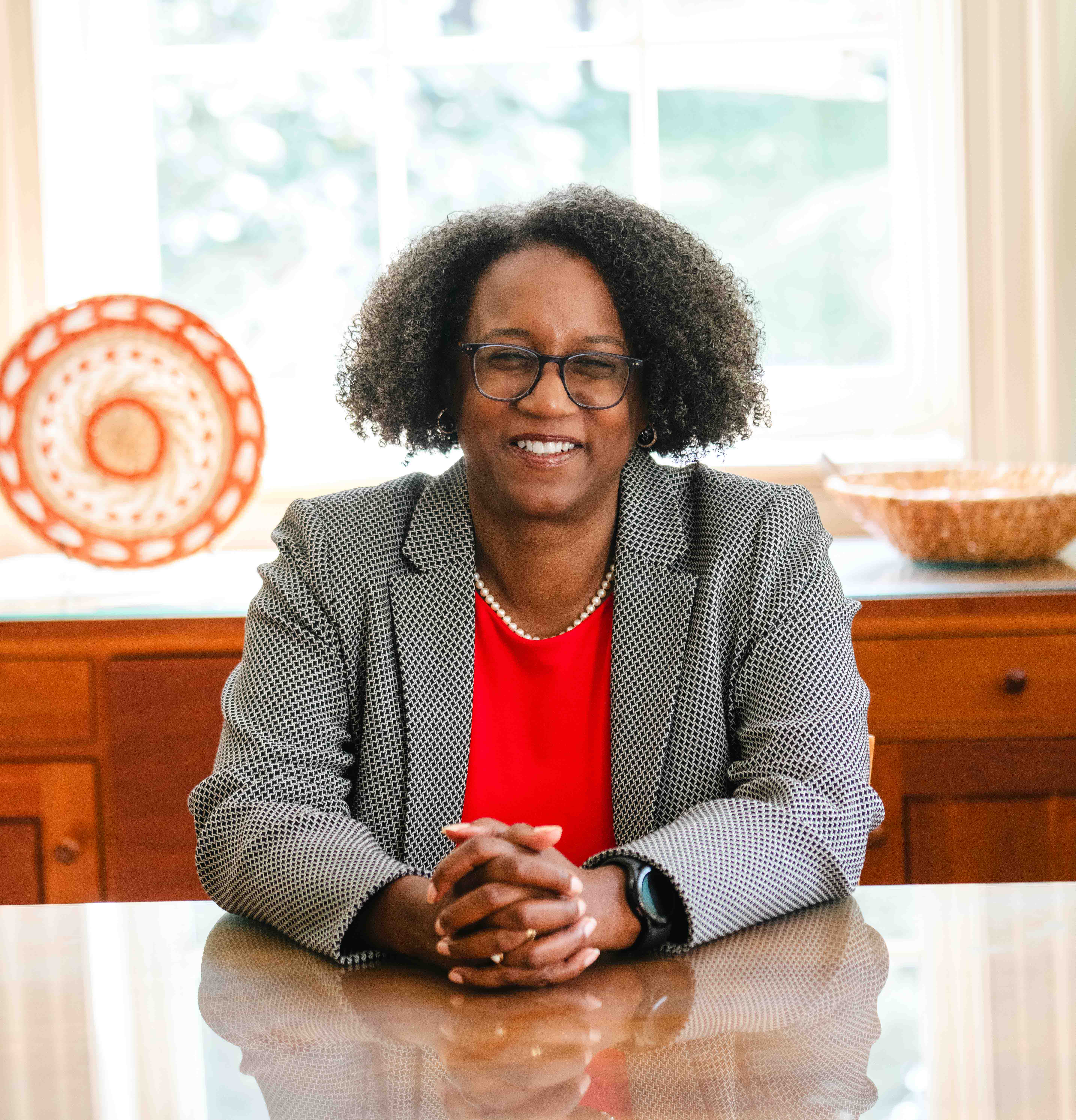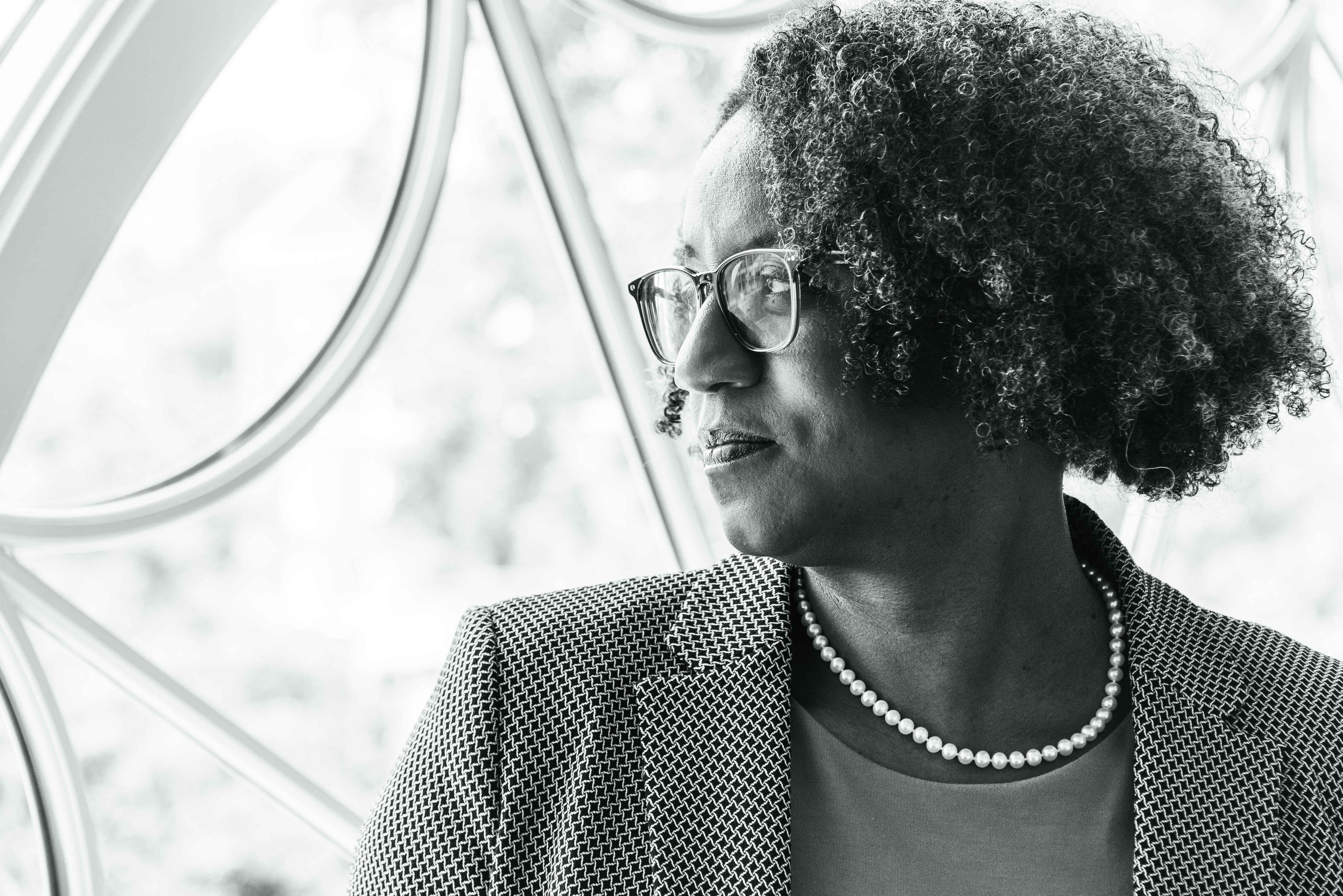Five Questions: Stephanie Rowley
Stephanie Rowley
Dean of the School of Education
and Human Development
Stephanie Rowley joined the University of Virginia in 2022 as dean of the School of Education and Human Development. Before becoming dean, she was provost, vice president for academic affairs, and dean at Teachers College, Columbia University, in New York. She is a graduate of the University of Virginia, earning her master’s degree and doctorate in developmental psychology from the Graduate School of Arts & Sciences.

Stephanie Rowley
Dean of the School of Education
and Human Development
Stephanie Rowley joined the University of Virginia in 2022 as dean of the School of Education and Human Development. Before becoming dean, she was provost, vice president for academic affairs, and dean at Teachers College, Columbia University, in New York. She is a graduate of the University of Virginia, earning her master’s degree and doctorate in developmental psychology from the Graduate School of Arts & Sciences.
- How will private support help you achieve your vision for the School of Education and Human Development?
Our vision is to be a catalyst for transformative change, empowering individuals, communities, and society to advance access, equity, and justice in a diverse and evolving world. Our faculty and students are committed to tackling the most pressing issues facing our society. Graduates of EHD become therapists, counselors, trainers, coaches, teachers, and scholars who make a significant impact on the lives of the people they serve. Private philanthropy allows us to offer students the critical hands-on learning experiences and scholarships they need during their time at UVA to thrive in their future roles.
At EHD, many of our faculty collaborate closely with local, national, and international partners who bring with them a wealth of experience and expertise. These partners help us to identify their most pressing problems and to develop culturally relevant approaches. At the same time, we help partners build capacity to sustain outcomes. We then use the new knowledge that we gain through this research in our classrooms to prepare future practitioners to work in those same communities. Private support seeds these research-practice partnerships and the resulting classroom innovations.

- President Ryan has made supporting first-generation students a priority of his presidency. How do you support first-generation students in the School of Education and Human Development?
Navigating those first moments of college can feel like learning another language for most students, but even more so for our first-generation students. It’s reasonable to expect that they might come to Grounds unfamiliar with how it all works, uncertain about how to lean on academic support systems, and with unique challenges compared to some of their peers. I believe our school has done great work to better understand what these students’ experiences, hurdles, and specific educational needs are.
At EHD, our community provides academic and social support for our first-generation students to set them up for long-term success. Through outreach and working with key stakeholders, particularly our first-generation working group, we have developed several key supports. We offer a course for first-generation students taught by first-generation staff members and host a graduate application workshop where first-generation graduate students provide mentorship and advice to first-generation undergraduates on applying to graduate school. These small investments help students navigate the unwritten rules of the college experience, including the importance of attending office hours and how to get a recommendation letter from a professor. We also focus on our students’ well-being by providing them with profound and long-lasting social experiences outside of the classroom. Every fall, we host a first-generation reception attended by EHD first-generation students, faculty, and staff. This provides students with an opportunity to make creative connections with their peers and others in our community who can serve as mentors.
- What is the biggest challenge facing the school’s academic enterprise today?
I believe that the ongoing teacher shortage will be one of our biggest challenges in the next several years. Not only for EHD—this is a complex problem that will take coordinated effort from education schools, school leaders, legislators, and community members to address. I also want to highlight that we’re experiencing not only a shortage of teachers but also of school counselors, early childhood educators, school leaders, and other practitioners and support staff who are critical for the success of our education system.
Continuing to recruit, support, and graduate excellent teachers and practitioners who are not only prepared but are passionate and excited about their work will always be a core responsibility of ours. However, today’s students are looking for variety in program delivery and exploring nontraditional paths to obtain licensure and degrees. As a school, we must adapt to this change, and in many ways we have with a suite of online and part-time academic programs and professional learning opportunities.
Stephanie Rowley
- What excites you most about being a part of UVA at this particular time?
I am so proud of the work that we are doing preparing students, engaging in research, and spreading this knowledge to surrounding communities. This work literally makes the world a better place! For example, faculty and staff from EHD are involved in training every reading specialist in the commonwealth and developed the literacy screening tool that our youngest students experience at school. I am also proud that we are reaching these aims by addressing barriers to student enrollment; that is, we are working to increase scholarships, build partnerships with community colleges, and offer digital instruction that allows professional graduate students to continue to work while furthering their education.
- What did you miss most about UVA before you returned, and what do you appreciate most now?
UVA is a special place, and Charlottesville has always felt like a home to me. The people that are part of this community are what I missed most. Our students, faculty, staff, and alumni are some of the most creative, intelligent, and caring individuals I’ve come across in my career. Everyone at UVA is committed to making a real difference in the lives of others. There is a fire and a passion mixed with collegiality that is truly unique.
As an educator, mentor, and scholar, I also felt a pull to contribute to the public good, and I wanted to be at a place that wasn’t afraid to ask tough questions and address the most critical issues facing our society today. The School of Education and Human Development at the University of Virginia felt like the right place for me to do that. I’m deeply inspired by the work being done across our institution and, in particular, President Ryan’s 2030 Plan.

